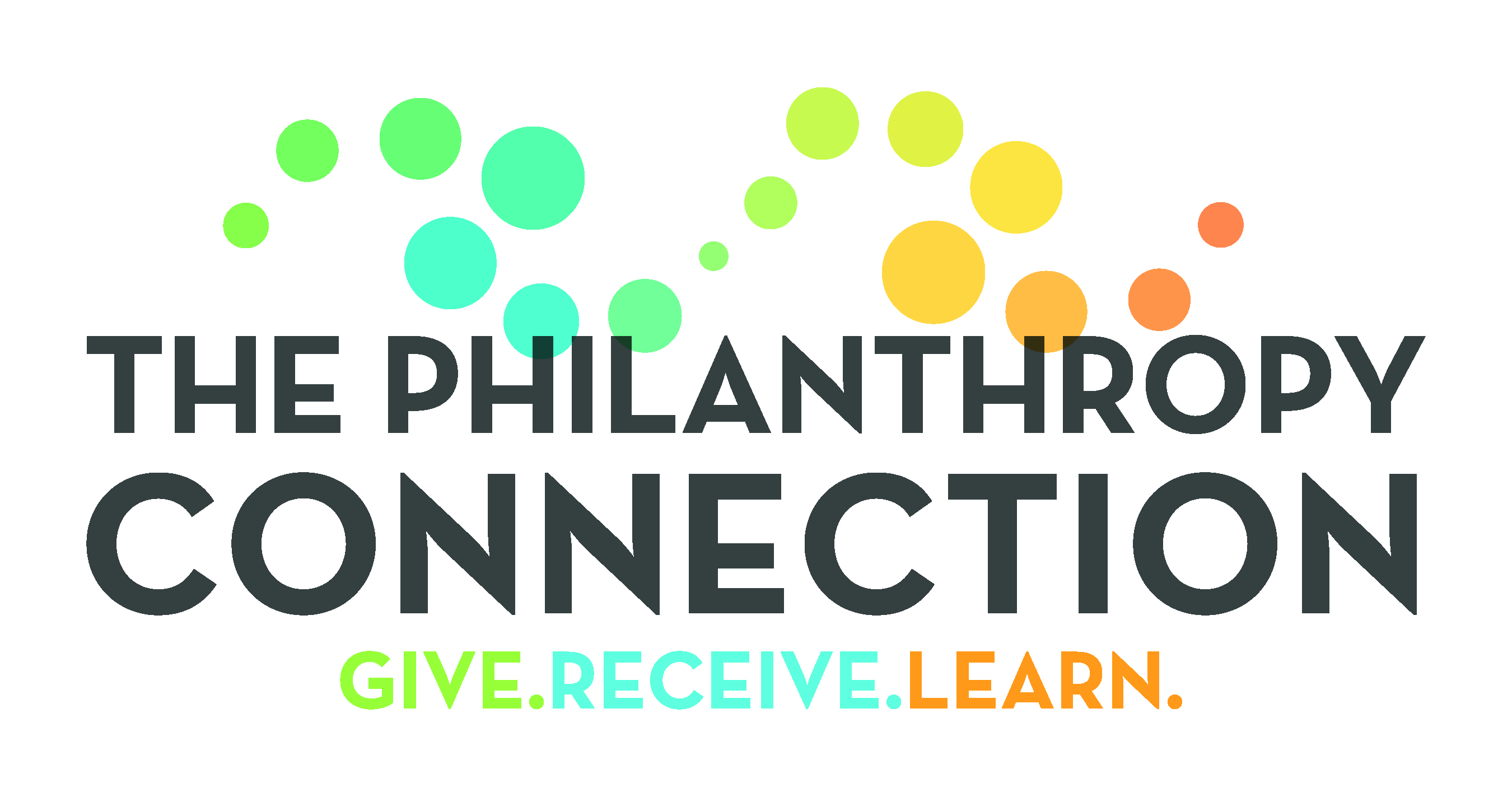The Interview with Samuel Acevedo
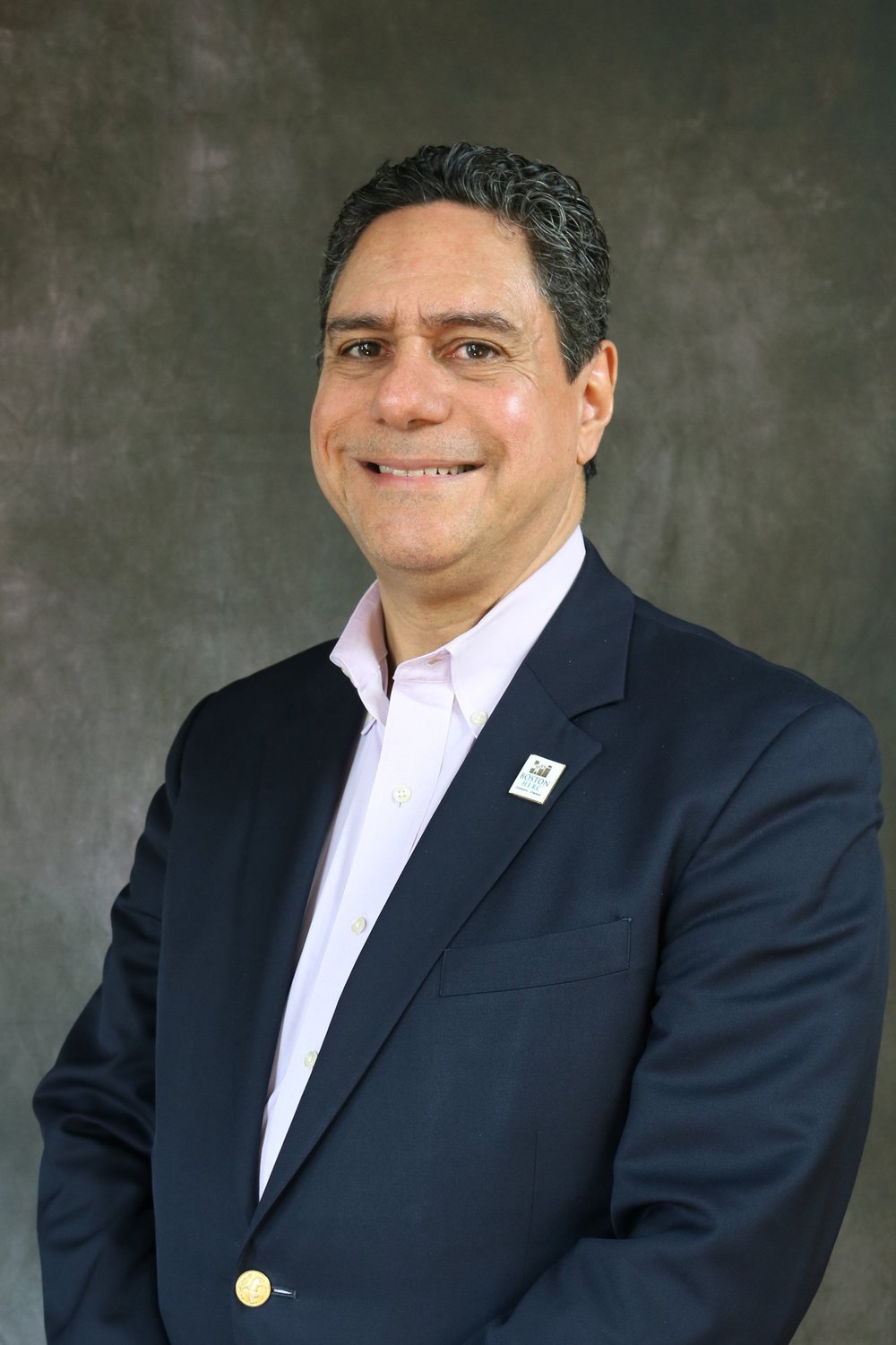
Boston HERC, and its signature Passport to College program, has a 20-year track record of equipping students of color who are the first in their families to finish high school and matriculate to college. These first-generation students are given the access and tools they need to thrive in higher education, to break the cycle of poverty, and to become agents of change in our communities.
Please tell us more about the Passport to College Program.
Passport is about far more than just helping students check off boxes in the college admissions process. It is rooted in the belief that there is greatness in each of the Passport students we serve. Passport connects these first-generation students to first-generation Passport Coaches to awaken passion and purpose, to imagine how they may be game changers in their families and communities, and to map out a plan to reach those goals.
If there is any community poised to close the opportunity and achievement gap, it is Boston. Doing so requires “rewiring” the minds of Boston Public School first-generation students and preparing them to lead in the competitive economy that is already shaping Boston’s future.
Boston HERC is currently in a scale-up effort to bring Passport to the classrooms of 1,200 first-generation youth, in as many as 15 non-exam Boston public high schools. We are deepening our capacity to serve these students beyond their graduation from high school into college and on to sustainable 21st century careers.
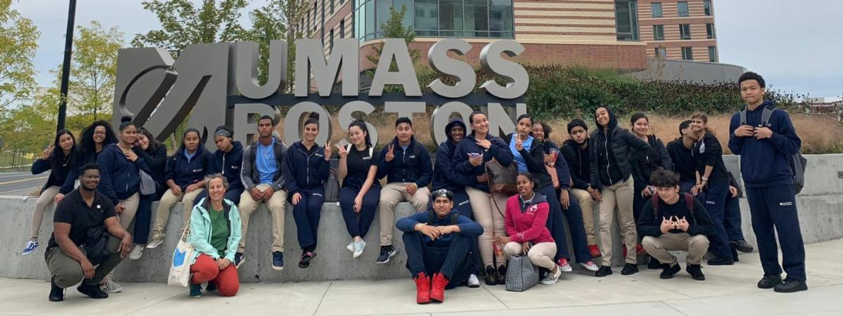
In the conclusion to your soon-to-be-released strategic plan, you mention that Boston HERC has gone through a more seismic change in the last 2 years than it has in its previous 18. What has been the push in the last 2 years that has created this change? What do you think is the biggest or most important change?
The most important thing we did was the equivalent of Boston HERC moving out of mom and dad’s basement and striking out on its own. Formed out of a Spanish-speaking church in Roxbury, Congregación León de Judá, we started as a drop-in college access counseling center in a makeshift office. You would be surprised at how few Latinx-led organizations in the city of Boston have their own 501(c)(3). We are proud to be a part of the Greater Boston Latino Network (GBLN), which recently completed a study in collaboration with Tufts and the Gaston Institute at UMass Boston. One of the chief discoveries gleaned from a survey of organizations in the city of Boston centered around the question as to which organizations fit the criteria of being Latinx-led. This included such criteria as the make-up of its executive leadership and staff, predominance on the board, and serving the Latinx population with its own 501(c)(3) status. There were only 10 organizations that matched the criteria. Not top 10, just 10. Latinx-led organizations are declining, and we’re seeing a nonprofit graveyard even though the Latinx population is rising. It was nice in the basement. It was safe. There’s a quote from John A. Shedd that has stuck with me, and I think it’s emblematic of this season for us:
“A ship in harbor is safe — but that is not what ships are built for.”
 For almost 19 years, Boston HERC was safely docked in a very nice harbor. But you can’t find your destiny there. All these wonderful things have happened since August 1, 2018 when we “undocked” and went full steam ahead out into the unknown. For us, there’s no going back. At this point, I said to myself, “We need a board now. It’s not just about you – you’re sharing this, and more people are signing on. Boston HERC was determined to stay and to grow; we were serious about this mission. Serious meant risking our own death, risking the perils that come with being an independent organization. But as an organization, we couldn’t tell a 17-year-old that her “destination is greatness” and not live that ourselves, not share with her the peril and the promise. I think it’s given us more credibility, even with our own individual kids. We had applied for a grant from TPC in the past, but shortly after becoming our own entity, we applied as ourselves and we received it. This grant was a catalyst for so many amazing things for us, including being selected by the Social Innovation Forum as 1 of the 8 non-profit organizations in the 2020 Social Innovator cohort, selected out of 134 applicants. We have been applying to SIF for years; the last time we were finalists was over a decade ago. Lately, I have often spoken of the “TPC Effect.” I do believe that our partnership with TPC has benefitted the Boston HERC enormously, including elevating the organization’s visibility in the community, and deepening our prestige. We are profoundly grateful for our partnership. We are committed to this voyage.
For almost 19 years, Boston HERC was safely docked in a very nice harbor. But you can’t find your destiny there. All these wonderful things have happened since August 1, 2018 when we “undocked” and went full steam ahead out into the unknown. For us, there’s no going back. At this point, I said to myself, “We need a board now. It’s not just about you – you’re sharing this, and more people are signing on. Boston HERC was determined to stay and to grow; we were serious about this mission. Serious meant risking our own death, risking the perils that come with being an independent organization. But as an organization, we couldn’t tell a 17-year-old that her “destination is greatness” and not live that ourselves, not share with her the peril and the promise. I think it’s given us more credibility, even with our own individual kids. We had applied for a grant from TPC in the past, but shortly after becoming our own entity, we applied as ourselves and we received it. This grant was a catalyst for so many amazing things for us, including being selected by the Social Innovation Forum as 1 of the 8 non-profit organizations in the 2020 Social Innovator cohort, selected out of 134 applicants. We have been applying to SIF for years; the last time we were finalists was over a decade ago. Lately, I have often spoken of the “TPC Effect.” I do believe that our partnership with TPC has benefitted the Boston HERC enormously, including elevating the organization’s visibility in the community, and deepening our prestige. We are profoundly grateful for our partnership. We are committed to this voyage.
What are some challenges and opportunities you foresee for your organization?
After talking to you and Diane Suda, we realized that we needed to grow in the area of offering our Passport students deeper post-secondary support. We’ve been fortunate to see the kind of persistence rates that we’re getting already, but when we drill into the data, we see that although we’re seeing about an 81% persistence rate for our students through their post-secondary careers, we see bubbles in that data and opportunities for growth. We also see opportunities when we look at the city-wide landscape. The upshot is that we’ve gone from thinking we need to beef up our support of our post-secondary Passport alumni, to thinking what we really need is a program-level response. What we need to do is launch virtually a stand-alone Passport alumni program.
The other bubble was initiating a new program – a post-secondary support system. In years past, we’ve toyed with this idea and even sought support for it, but we believe this is an idea whose time has come. We also believe we now have the right people to implement the program. The person we’re envisioning to do this is already in our community. Neisha Gonzalez came to us five years ago as a coach, went up through the ranks, became a senior program coach, earned her Masters degree in Education under our tenure, and many of the ideas enshrined in our proposal came out of her experience. They have been tested in the classrooms of her own Passport students at the Margarita Muñiz Academy and English High School. It was Neisha who essentially piloted the post-secondary support strategy that is now the rule of the day at this school.
We now want to adopt this program. There will be links between what we do in the high schools and what we offer at the post-secondary level. We’re envisioning a cascade of alumni support, and will recruit from this group to serve our sophomores and freshmen, if not as full-time coaches, then as post-secondary peer support. Our upperclassmen alumni will become peer leaders for our sophomores and freshmen. One of our goals is to have at least one or two of our Passport alumni on our Board of Directors within the next three years. One of the challenges in the City of Boston is that many of the entities we’re turning to for post-secondary support are losing a lot of their capacity because the central grant from the Federal Government that propelled them is going away. This vision must include continued partnerships with entities like Hyde Square Task Force, uAspire, and Bottom Line. There’s no way we’ll be able to support upwards of 200 seniors a year going off into college without a community response. What we see from our data is that the most effective support our Passport alumni receive is from our own people. What Neisha is going to do is galvanize this, turn it into a thing that marches in step, in structural harmony, and in a strategic direction. Right now, we have 150 of our alumni in intentional relationships with some member of the Boston HERC universe. We want to double that over the next three years, adding to the students we’re serving in high school. What is imperative is having these first-generation students complete their journey and achieve their destiny.
I’ve learned a big takeaway from your organization aside from the practical help that is given is that relationships matter. How would you describe the impact intentional relationships between the youth you serve and your staff have on student success?
Trust. Trust is everything. Trust equals impact. I often write that the real power of Boston HERC is in these relationships. We would have bragging rights if we talked only about our curriculum, which is only a fraction of the reason we’re so effective. The real key is that we’ve put it in the hands of coaches who themselves are first-generation survivors. In the classroom, these coaches see almost a mirror image of themselves in their students. But they see them in a cap and gown, having overcome obstacles that today look insurmountable. They see these students achieving as they did.
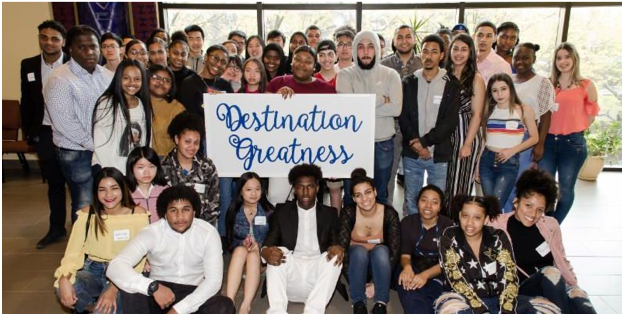 The core currency of Boston HERC’s social capital is that coach. Although it’s great that our coaches are by and large people of color – we have a wonderfully diverse team –we’ve discovered the most important thing they bring is a consciousness of what it means to be the first in their families to go to college: the challenges, the pitfalls, the dangers, and also the exhilaration. It’s almost impossible to train someone in that consciousness. In the classroom, it means nanosecond decisions and impulses interpreting a student’s reality and responding in kind. We’ve discovered the hard way that we can’t train a well-meaning second- or third-generation coach into that level of sensibility. Too, as tough as it can be, we are by design in some of the hardest classrooms in Boston Public Schools non-exam high schools. We’ve chosen to be there and have credibility because we’ve emerged from that world ourselves. Kids get that. Over time, they also learn that we’re going to love on them regardless of the smoke screens they hide behind. We are there to help them discover their greatness.
The core currency of Boston HERC’s social capital is that coach. Although it’s great that our coaches are by and large people of color – we have a wonderfully diverse team –we’ve discovered the most important thing they bring is a consciousness of what it means to be the first in their families to go to college: the challenges, the pitfalls, the dangers, and also the exhilaration. It’s almost impossible to train someone in that consciousness. In the classroom, it means nanosecond decisions and impulses interpreting a student’s reality and responding in kind. We’ve discovered the hard way that we can’t train a well-meaning second- or third-generation coach into that level of sensibility. Too, as tough as it can be, we are by design in some of the hardest classrooms in Boston Public Schools non-exam high schools. We’ve chosen to be there and have credibility because we’ve emerged from that world ourselves. Kids get that. Over time, they also learn that we’re going to love on them regardless of the smoke screens they hide behind. We are there to help them discover their greatness.
Can you tell us a little about your curriculum?
I don’t talk about our curriculum enough. This is the brainchild of Carolina De Jesus, the other powerhouse Latina on our team. Carolina turned out to be a really gifted curriculum designer on a mission – she was a curriculum Steinbeck waiting to write her Grapes of Wrath, and that turned out to be the Passport Curriculum. It’s a masterpiece. It’s written by BPS educators she teamed up with, with BPS first generation students in mind, to be used specifically in BPS classrooms. In a conversation with no less than Carla Estrada, former Deputy Superintendent and curriculum jockey, she paid us a compliment. She said, “I’ve seen a lot of curricula in BPS, but I’ve never seen one like this.” There’s a lot of great curricula; most of it is hot-wired from elsewhere and adapted to our BPS classrooms. This one is homegrown, grassroots. It needs a facelift now, and Carolina knows that, and that’s one of the big things we’re going to do.
What has been a moment for you during the course of your career with Boston HERC that you think of as an “Ah ha!” moment?
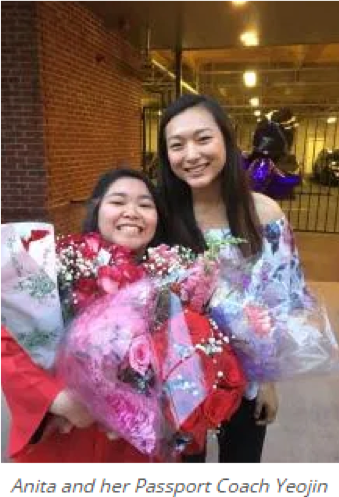 I have had many of those. The earliest one happened when we were part of a collaboration with an organization called Tech Boston; someone was doing an evaluation of them and their partners, which helped pay for an independent evaluation of Boston HERC. This was back in 2008 and involved interviewing our Passport students and coordinators when it was only an after-school program. Their conclusion was, “Wow! Do you realize what you’ve got here?” In a way, we really didn’t have a sense of how special the Passport program was, although we knew our students were special. We were asked if we had given any thought to attempting to bring this into school classrooms. We were nowhere near being able to do that capacity-wise, nor was the timing right. BPS wasn’t ready to take on non-profit partners as it does today, and certainly not grassroots organizations like us. But, importantly, the data showed we had that potential. Today, BPS is our leading partner and we are committed as much to BPS success as we are to BPS students. We’re looking forward to serving 10 schools in the fall.
I have had many of those. The earliest one happened when we were part of a collaboration with an organization called Tech Boston; someone was doing an evaluation of them and their partners, which helped pay for an independent evaluation of Boston HERC. This was back in 2008 and involved interviewing our Passport students and coordinators when it was only an after-school program. Their conclusion was, “Wow! Do you realize what you’ve got here?” In a way, we really didn’t have a sense of how special the Passport program was, although we knew our students were special. We were asked if we had given any thought to attempting to bring this into school classrooms. We were nowhere near being able to do that capacity-wise, nor was the timing right. BPS wasn’t ready to take on non-profit partners as it does today, and certainly not grassroots organizations like us. But, importantly, the data showed we had that potential. Today, BPS is our leading partner and we are committed as much to BPS success as we are to BPS students. We’re looking forward to serving 10 schools in the fall.
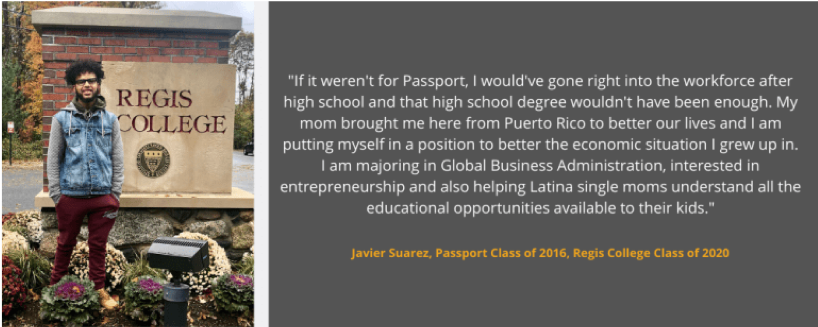
What is something you want TPC members to know about your organization that they would otherwise not know?
We’ve been called a start-up that’s been 20 years in the making. That sense of start-up thrill is energizing us and flows through us still. We have everything to learn about keeping boards happy, and turning a strategic plan into dynamic strategic action; we just completed a five-year strategic plan that I think is going to take us to great places. We have had an awful lot of “Oh My!” moments that I’d love to share with the TPC community.
TPC has been a wonderful thought partner. The liaison program is fabulous, and please don’t assume we know it all, but keep asking us great questions. Don’t be afraid to suggest to us how we could build a better mousetrap. Not to get too personal, but here you [Olivia] are, a millennial addition to TPC. The conversation we had with you and Diane was a wonderful test kitchen for us, and it inspired us to go full throttle on an idea we’ve toyed with in the past. The approval and encouragement from you verified that this is the direction we need to go in order to better serve students and BPS.
